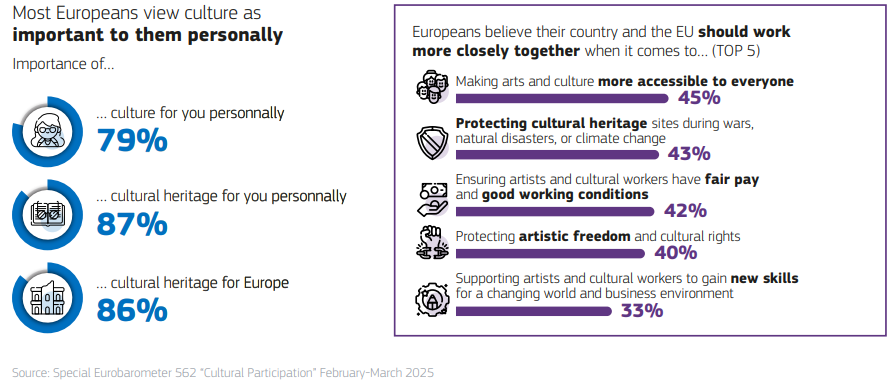This survey gives us a significant insight into the value attributed to culture in the European Union. The answers show a strong desire for joint action to support cultural resilience, inclusiveness, and the well-being of those who bring culture to life every day.
We all feel a strong connection to our family traditions, roots, and cultural heritage, which shape who we are. But in an age where smartphones, social media, and digital platforms link us instantly across borders, how much does culture still influence the sense of belonging and unity among European citizens? And what role can it play in fostering deeper connections in a society that is increasingly connected, yet often fragmented, by technology?



